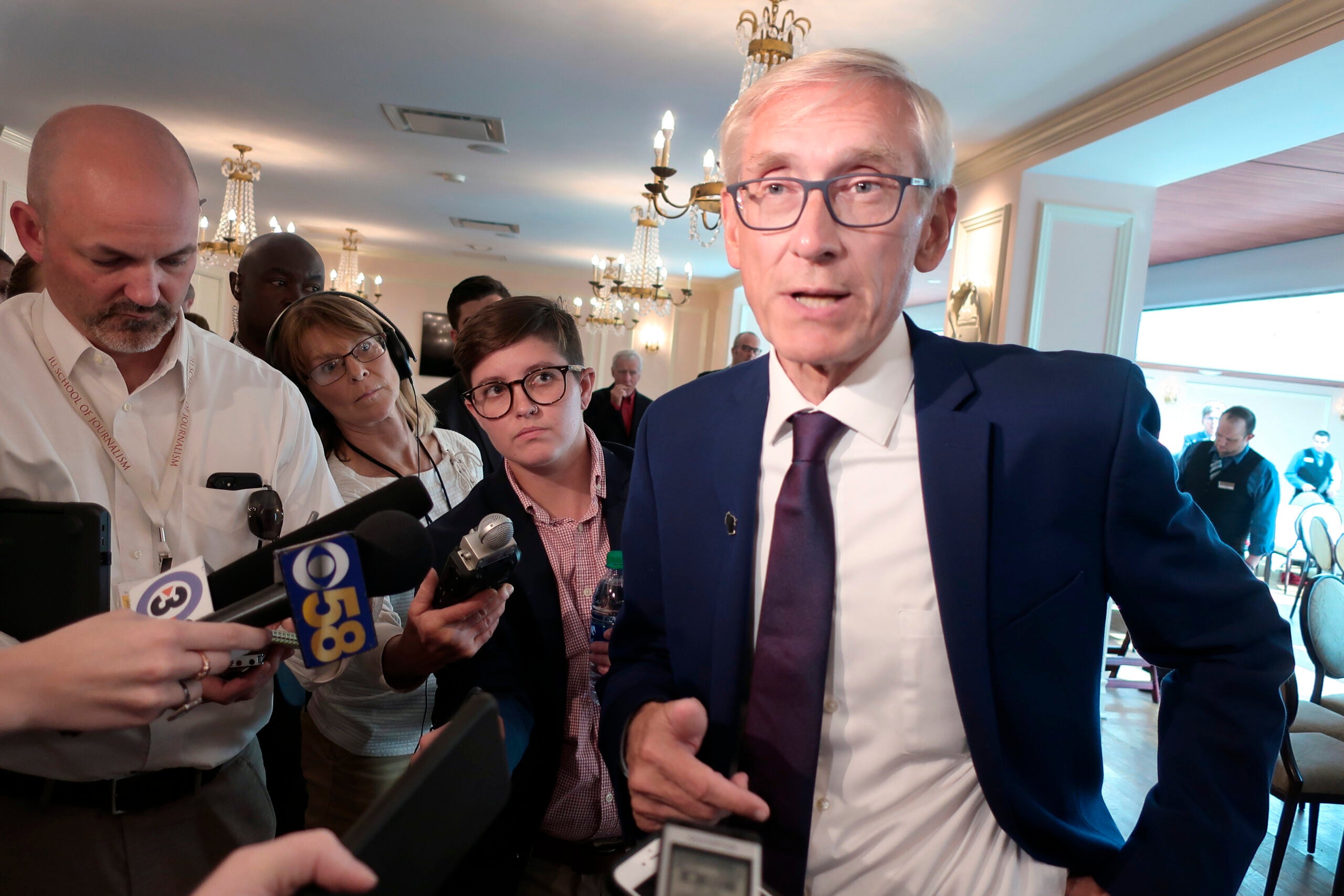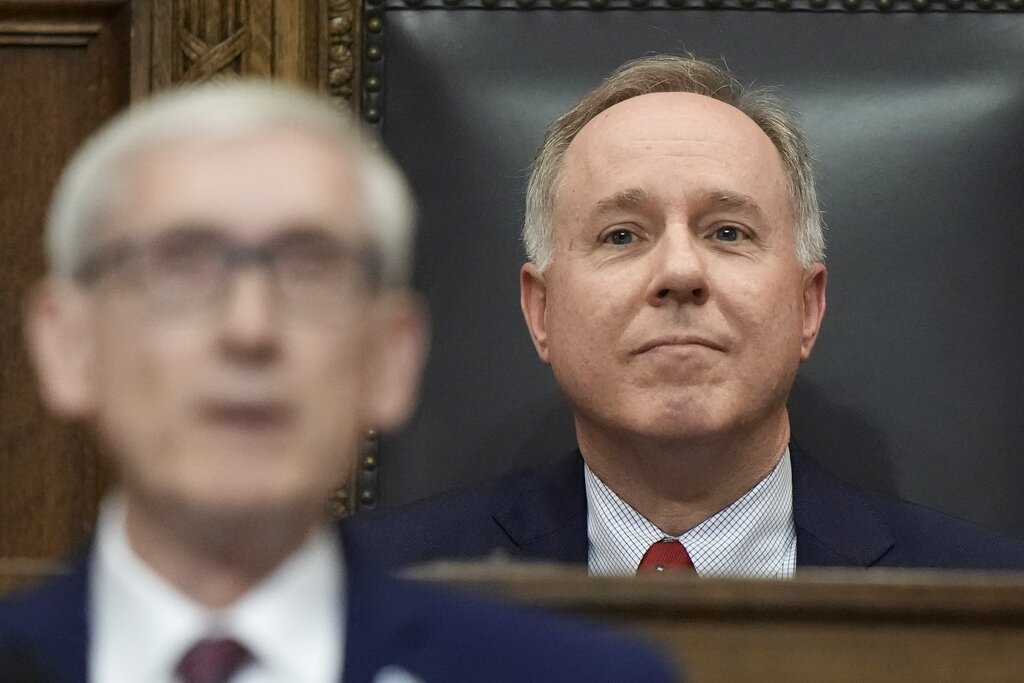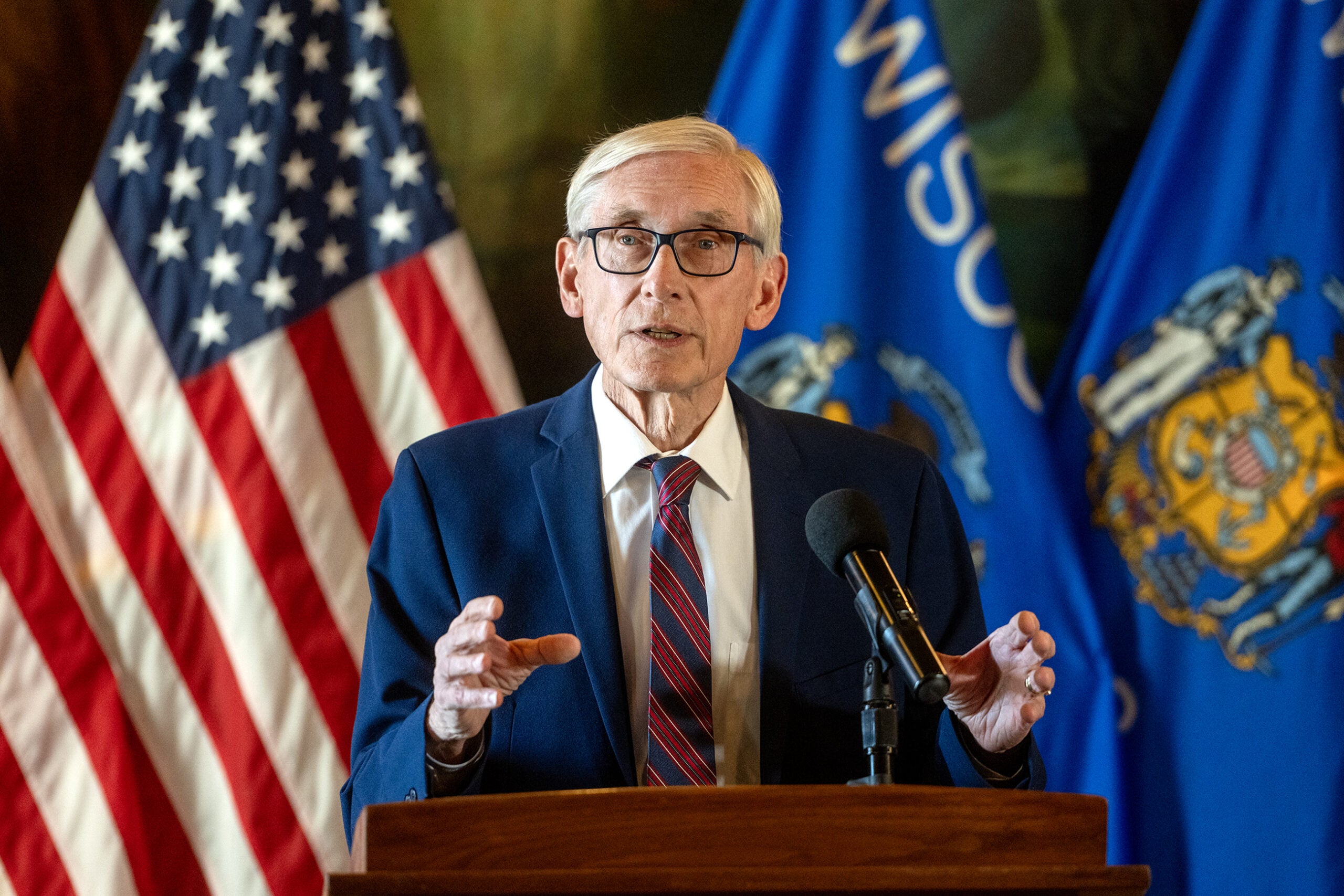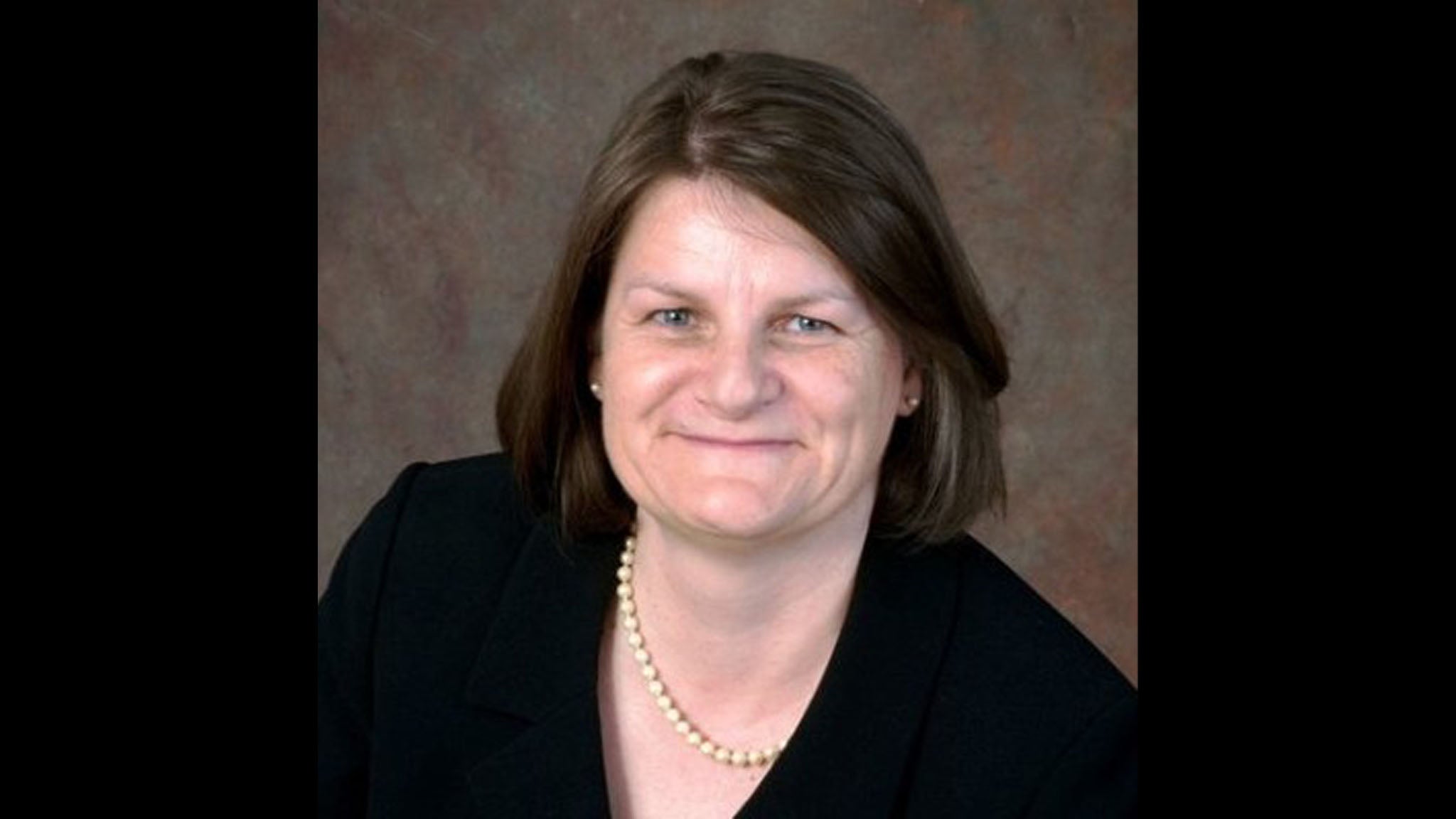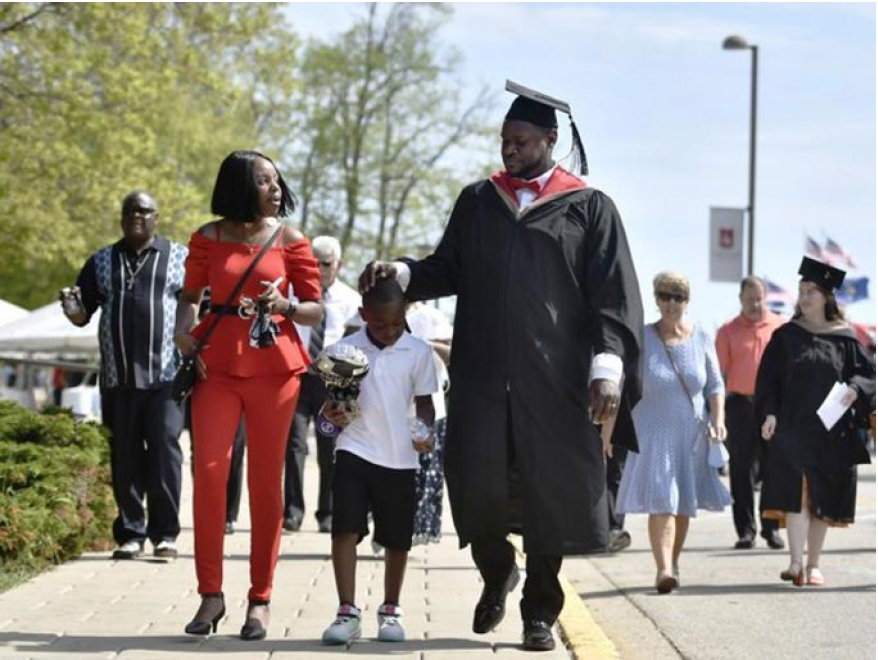Gov. Tony Evers used his constitutional authority to grant clemency Monday, issuing four pardons — the first in the state in 9 years.
In June, Evers reinstated the Wisconsin’s pardon review board, following his campaign promise to consider granting pardons. His Republican predecessor, former Gov. Scott Walker, never issued a pardon during his two terms.
Evers pardoned Eric Pizer, Kevin Sorenson, Mwangi Vasser and Steven Nichols, all men who committed crimes in their teens or early 20s.
News with a little more humanity
WPR’s “Wisconsin Today” newsletter keeps you connected to the state you love without feeling overwhelmed. No paywall. No agenda. No corporate filter.
Evers said in a statement that the men “have paid their debt to society, made amends and contributed to their communities … I believe they deserve a second chance.”
Mark Osler, a law professor at the University of St. Thomas who specializes in issues of sentencing and clemency, said Evers picked some of the “best of the crop” with these pardons.
“They were all youthful offenses,” he said. “(They) had time after that to show that that felony was not who they were in the broader scope of their life.”
A pardon doesn’t remove convictions from criminal records or imply innocence, but it does restore some rights, including gun and occupational rights, the ability to serve on a jury, to hold public office and hold various licenses, Osler said.
- Sorenson, 36, worked as an Air Force civilian employee after completing probation. He sought a pardon so he could serve in more positions in the military. He was convicted of selling ecstasy at 17.
- Nichols, 62, asked for a pardon so he could hunt and travel to Canada. At 21, he was convicted of felony burglary.
- Vasser, 40, got his doctorate in theology after being arrested for selling cocaine at 19. He asked for a pardon so he could become a military chaplain.
- Pizer, 38, asked for a pardon so he could hunt and pursue a career in law enforcement. He received a felony battery conviction at 22 after he got in a bar fight when celebrating his return home from his second tour of duty in Iraq as a Marine.
Going forward, Osler said the cases will likely be more complicated.
Just last week, Brendan Dassey, featured in the 2015 Netflix series “Making a Murderer,” requested a pardon from Evers. Dassey is serving a life sentence for the 2005 killing of Theresa Halbach.
Osler has advised Dassey’s legal team in their pursuit for clemency.
Yet, Dassey’s case doesn’t fit in with requirements Evers has stated in the past for considering pardons, including having completed the entire prison sentence. Evers has also said he won’t consider commutations.
Former Democratic Gov. Jim Doyle issued 300 pardons during his tenure and Republican Govs. Scott McCallum and Tommy Thompson issued a combined 262 pardons. Osler said Wisconsin falls somewhere in the middle of the pack nationally when it comes to issuing pardons.
“One thing to emphasize here is that there’s not a red-blue divide,” he said. “It’s kind of all over the map and it often has as much to do with process as it does with anything else.”
Wisconsin’s constitution leaves the pardon process in the hands of the governor. The pardon review board reinstated by Evers after Walker halted it in 2011, isn’t required.
Osler said he thinks it’s likely the board will make regular recommendations to Evers.
“There’s a good likelihood … this won’t be an end of the year thing or an end of the term thing,” he said. “This is going to be a regular part of his governorship.”
Wisconsin Public Radio, © Copyright 2026, Board of Regents of the University of Wisconsin System and Wisconsin Educational Communications Board.

